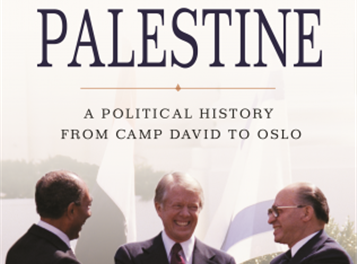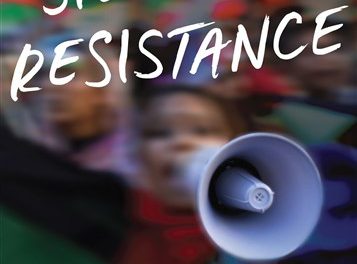Mansoor Moaddel, The Clash of Values: Islamic Fundamentalism versus Liberal Nationalism (New York: Columbia University Press, 2020).
Jadaliyya (J): What made you write this book?
Mansoor Moaddel (MM): This book is the result of my comparative cross-national study of human values and mass belief systems. It started with a comparative survey project in Egypt, Iran, and Jordan in 2000. In the following years, I continued carrying out surveys in the Middle East and North Africa, using nationally representative samples of one thousand to three thousand adult respondents. By 2016, twenty-nine surveys had been completed across the previous sixteen years: seven in Egypt; two in Iran; seven in Iraq; two in Jordan; two in Lebanon; one in Morocco; one in Pakistan; three in Saudi Arabia; two in Tunisia; and two in Turkey—a total of well over 80,000 face to face interviews.
These surveys produced the empirical evidence to highlight cross-national variation and trend in values across some of these countries. The survey instrument measures people’s value orientations toward some of the most fundamental principles of social organization, including expressive individualism, gender equality, secular politics, identity, liberal values, and religion and religious fundamentalism.
The data also made it possible to assess the social basis of support for two clusters of conflicting values (Islamic fundamentalism versus liberal nationalism), rethink the process of values change, and show that this process, while being constrained by economic development, is not determined by it. Rather, values change as a result of a conjuncture of historical forces, and the current alignment of these forces indicate the decline of political Islam and the rise of liberal values—an important finding to report, and the reason for writing this book.
J: What particular topics, issues, and literatures does the book address?
MM: To understand cultural values, this book abandons the classificatory schemata of world cultures as traditional versus modern, materialists versus postmaterialist, and so forth (on this point, I fully agree with the subaltern studies scholars), which are purportedly linked to the level of economic development. As an alternative, I suggest that to understand a society’s cultural conditions, it is important also to understand how people resolve the significant issues they face. Despite extensive historical debates over issues, wars of positions, and publications of articles, essays, commentaries, and books by cultural contenders defending this or the other side of the issue, the number of issues that are being debated in any society at a given moment is remarkably small, about half a dozen.
I identified, conceptualized, and measured these issues in the contemporary MENA countries. They revolve on individual autonomy versus obedience to parental authority/patrimonial norms; gender equality versus male supremacy; secular politics versus Islamic government; the nation or ethnicity as the primary basis of identity versus religion; religious equality versus religious intolerance; religious modernism versus fundamentalism; and the West as the exemplar of progress and civilization versus the West as culturally decadent. How and in what direction these issues are being resolved tell us whether a society is oriented toward, for example, liberal democracy, state socialism, ethnic nationalism, or Islamic fundamentalism.
J: How does this book connect to and/or depart from your previous work?
MM: The collection of comparative values survey data forming the basis of this book is a continuation of a broader research program on the causes and process of ideological production and values change in the Middle East and North Africa, which I started after graduating from University of Wisconsin-Madison in 1986. It began as a comparative cross-national project on ideological production, focusing on how intellectual leaders in MENA countries resolve the fundamental issues related to the role of religion in society, the relationship between religion and politics, form of government, the social status of women, the basis of identity, and the nature of the outside world, the West in particular. The resolutions of these issues by these intellectuals contributed to the rise of different cultural episodes. In this project, I analyzed the rise of Islamic modernism in Egypt, India, and Iran in the second half of the nineteenth century; liberal nationalism in Egypt, anti-clerical secularism and economic nationalism in Iran, and pan-Arab nationalism in Egypt and Syria in the first half of the twentieth century; and Islamic fundamentalism in Algeria, Egypt, Iran, Jordan, and Syria in the second half of the twentieth century.
Both my comparative historical project on ideological production and comparative cross-national and longitudinal surveys try to answer the same question but use different methodologies and analyze different data. The first focuses on the intellectual leaders and the second on the ordinary public, but both reveal similar dialogical dynamics in the production of discourse and values change. For example, in the same way that the indigenous intellectuals produced nationalist discourse in early twentieth-century Algeria and Egypt in opposition to the French and British occupation, respectively, the remarkable rise in national identity among ordinary Iraqis was also a response to the American occupation of their country in 2003. Moreover, the rise of liberal Arabism among Syrian intellectual leaders in the late-nineteenth century was in opposition to the pan-Islamic despotism of Ottoman Sultan Abdülhamīd, or the upsurge of anti-clerical secularism and constitutionalism among their Iranian counterparts transpired in response to the obstructionism of the jurisconsults and the Qajars’ absolutism, respectively, in the 1906 Constitutional Revolution. Similarly, the recent shift toward liberal political values appears an oppositional response to violent Islamic fundamentalism in Iran, Egypt, Turkey, and other countries in the region within the past decades.
J: Who do you hope will read this book, and what sort of impact would you like it to have?
MM: In this book, I have brought empirical evidence to bear in backing the claim that support for liberal democracy is on the rise in the Middle East and North Africa. I would like to see this book enhancing the morale and emotional energy of the enthusiasts of expressive individualism, gender equality, secular politics, national-cum-patriotic identity, and generally liberal values. I want them to realize that now the time is ripe, perhaps better than in any other period in the past several decades, for realizing the project of liberal democracy.
It is also interesting to note that as we are facing the rise of xenophobic nationalist movement in Western Europe and white nationalism in the United States, the Middle East and North Africa is moving in the other direction—abandoning political Islam and embracing liberal democracy—perhaps the region is moving toward reclaiming the cradle of human civilization it once harbingered.
J: What other projects are you working on now?
MM: I am currently engaged in a comparative panel survey in Egypt, Tunisia, and Turkey in order to better document changes in values across these countries and advance a causal analysis of values change. The first wave was completed in 2011 to 2013, the second wave in 2015 to 2016, and the third wave is being conducted as we speak.
J: Who are the liberals?
MM: I would like to see militant liberals—those who are fully committed to the principles of liberty and equality—lead the movement for liberal democracy. Wishy-washy liberals are not helpful.
Excerpt from the book (from the introduction)
The political conditions of the contemporary Middle East and North Africa appear complicated and therefore hard to grasp. This book attempts to reduce this complexity by highlighting the opposition between Islamic fundamentalism and liberal nationalism as the key dimension of ideological warfare and political conflict currently transpiring in the region. This book brings empirical evidence on the depth and breadth of the clash of fundamentalist and liberal values among members of the ordinary public in seven countries—Egypt, Iraq, Lebanon, Pakistan, Saudi Arabia, Tunisia, and Turkey—and shows that the factors that weaken fundamentalism also strengthen liberal values among individuals and across these countries, and vice versa. In doing so, this book proposes that the future political development of the region lies in how this conflict is resolved. This future will be determined by whether such liberal values as expressive individualism, gender equality, secular politics, religious tolerance, and national identity are turned into permanent features of the social order or are undermined as a result of the fundamentalists’ rigorous patronage of patriarchy, male supremacy, gender segregation, Islamic authoritarian government, religious intolerance, in-group or sectarian solidarity, and hostility toward outsiders—the West, in particular.











